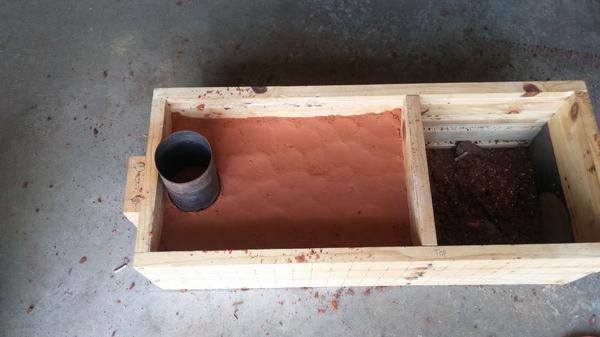Get This Report about Alcast Company
Get This Report about Alcast Company
Blog Article
The Best Strategy To Use For Alcast Company
Table of ContentsAn Unbiased View of Alcast CompanyAll about Alcast CompanyGetting The Alcast Company To WorkThe Greatest Guide To Alcast CompanyExamine This Report about Alcast CompanySome Of Alcast Company
The subtle difference depends on the chemical material. Chemical Contrast of Cast Aluminum Alloys Silicon promotes castability by reducing the alloy's melting temperature level and enhancing fluidness during casting. It plays a vital function in allowing complex mold and mildews to be loaded accurately. Additionally, silicon adds to the alloy's strength and use resistance, making it valuable in applications where longevity is important, such as vehicle components and engine parts.It also enhances the machinability of the alloy, making it less complicated to refine right into completed items. This way, iron contributes to the overall workability of aluminum alloys. Copper raises electrical conductivity, making it beneficial in electrical applications. It additionally boosts rust resistance and contributes to the alloy's overall strength.
Manganese adds to the toughness of light weight aluminum alloys and enhances workability. Magnesium is a light-weight component that gives toughness and effect resistance to light weight aluminum alloys.
Some Known Facts About Alcast Company.
Zinc boosts the castability of aluminum alloys and helps control the solidification process during casting. It enhances the alloy's stamina and solidity.

The primary thermal conductivity, tensile strength, yield strength, and elongation vary. Amongst the above alloys, A356 has the highest possible thermal conductivity, and A380 and ADC12 have the lowest.
Not known Details About Alcast Company

In precision spreading, 6063 is well-suited for applications where elaborate geometries and high-quality surface coatings are paramount. Instances consist of telecommunication enclosures, where the alloy's remarkable formability permits sleek and visually pleasing designs while keeping architectural stability. In the Lighting Solutions industry, precision-cast 6063 elements develop stylish and reliable lights components that require elaborate forms and excellent thermal performance.
The A360 shows premium prolongation, making it optimal for complicated and thin-walled components. In precision spreading applications, A360 is appropriate for industries such as Customer Electronic Devices, Telecommunication, and Power Tools.
Not known Facts About Alcast Company
Its unique residential or commercial properties make A360 a beneficial choice for precision spreading in these industries, enhancing product toughness and quality. Aluminum alloy 380, or A380, is a commonly made use of casting alloy with a number of unique characteristics. It uses superb castability, making it a perfect option for accuracy spreading. A380 shows good fluidity when molten, making sure detailed and detailed molds are precisely replicated.
In precision spreading, aluminum 413 beams in the Consumer Electronic Devices and Power Tools sectors. This alloy's remarkable rust resistance makes it an exceptional option for outdoor applications, making sure lasting, long lasting products in the mentioned markets.
Not known Facts About Alcast Company
The aluminum alloy you pick will considerably impact both the casting process and the homes of the last product. Due to the fact that of this, you should make your choice very carefully and take an informed technique.
Establishing the most ideal aluminum alloy for your application will certainly mean weighing a wide selection my site of attributes. These comparative alloy characteristics comply with the North American Pass Away Spreading Organization's standards, and we've divided them right into two classifications. The initial category addresses alloy qualities that affect the production process. The 2nd covers qualities impacting the homes of the final product.
The Greatest Guide To Alcast Company
The alloy you select for die casting straight influences a number of facets of the spreading process, like exactly how easy the alloy is to deal with and if it is vulnerable to casting defects. Warm breaking, also called solidification fracturing, is a normal die spreading problem for aluminum alloys that can cause internal or surface-level tears or cracks.
Particular aluminum alloys are a lot more susceptible to warm fracturing than others, and your selection must consider this. An additional common flaw located in the die casting of aluminum is die soldering, which is when the actors adheres to the die walls and makes ejection tough. It can harm both the actors and the die, so you should search for alloys with high anti-soldering homes.
Deterioration resistance, which is currently a notable characteristic of aluminum, can differ considerably from alloy to alloy and is a vital characteristic to take into consideration relying on the environmental problems your product will be subjected to (Foundry). Wear resistance is another residential or commercial property typically sought in aluminum products and can separate some alloys
Report this page